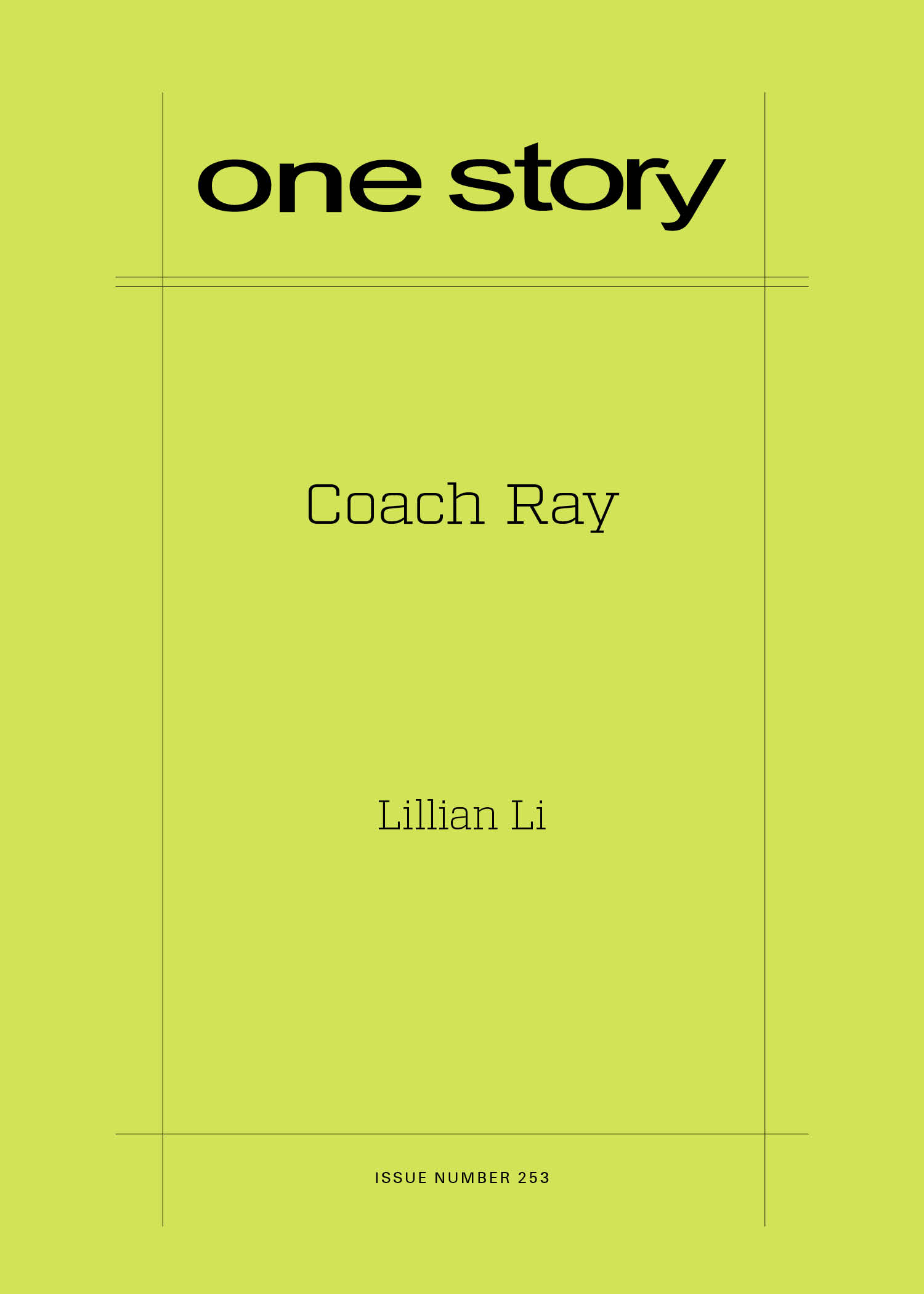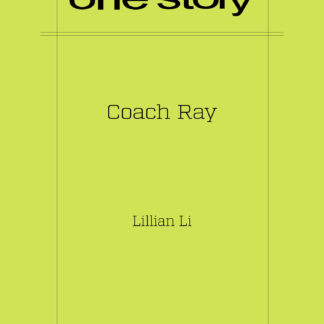
Coach Ray
$2.50
69 in stock
Excerpt
Every summer, during the last week of August, Coach Ray and his cross-country team drove from Massachusetts to Vermont for training camp: seven days that ended with a four-mile run up the side of Mount Mansfield. No such camp had existed when Coach Ray was on the team, back when it was boys only, and he, Raymond Dockett, its star runner. Instead, Mount Mansfield had been a day trip, and a mandatory one. Leaving at the break of dawn, Coach Dawes would drop the boys off at the base of the mountain, tell them to get their asses up and back down by noon, and treat them to ice cream if their times were fast enough to please him. They would be back in St. Joe’s parking lot before dinner.
Now the team could look forward to a weeklong stay at beautiful Camp Abernacki. One more example of how spoiled the students at St. Joseph’s Prep were, the other coaches at the school liked to say. Ray didn’t mind the extra work. The camp was good for the team, dissolving the cliques that had firmed back up after season’s end. By the last day of the week, everyone would be a teammate again.
Lillian Li
Lillian Li is the author of the novel Number One Chinese Restaurant. Her work has been published in the New York Times, Granta, Guernica, Glimmer Train, Bon Appetit, and Jezebel. Originally from the D.C. metro area, she lives in Ann Arbor.
Lena Valencia on “Coach Ray”
On the annual St. Joe’s Prep cross-country team retreat at a Vermont summer camp, Coach Raymond Dockett is intent on helping the newest member, Oliver, see his potential as a runner. But it seems that Oliver doesn’t need Coach Ray’s assistance. In fact, Oliver seems to be doing everything he can to thwart Coach Ray’s attempts to help him. And the more Oliver resists Coach Ray’s help, the angrier Coach Ray gets.
There is no triumph of the underdog in this sports narrative, no good-hearted coach leading a scrappy nobody to victory. Instead, “Coach Ray” deals with something far more complicated: the power dynamics of mentorship. In writing this story, Lillian Li wanted to “look at how people abuse their power without realizing it.” As I found myself drawn deeper into the struggle between Coach Ray and Oliver, it became less and less clear who I should be rooting for.
“Coach Ray” is a disconcerting portrait of a flawed character. It’s also funny and formally inventive. It will make you laugh, and it will make you cringe in the best way. It’s morally ambiguous: regardless of who makes it to the finish line first, there are no easy answers as to who wins at the end. I’m thrilled to introduce you to Lillian Li’s “Coach Ray.”
Q&A by Lena Valencia
- LV: Where did the idea for this story come from?
- LL: When I’m stuck for a story idea, I go through all the people I know until I find someone who has enough mystery about them to make a good foundation for a character. That’s what I did for “Coach Ray,” and my mental rolodex pulled up my high school cross-country coach, whom I adored, whom everyone on the team adored, and who always seemed a little flabbergasted by our adoration. The more I thought about my coach, the more I realized what a powerful position he held in our lives, and how vulnerable all of us were as his runners—not just to his training regimen and race decisions, but to his approval and his attention. I used to judge my performance on whether my coach told me “Good job,” or “Good effort” at the end of a race day (the latter crushed me), and I wasn’t even a dedicated runner! I started to wonder how a person in that coach role finds and demarcates the boundaries between professional and personal care, and what happens when that self-enforcement slips.
- LV: What was the most challenging aspect of writing this story?
- LL: The relationship between Coach Ray and Oliver was very difficult. The conflict between them had to escalate, but in a believable way, and also in a way that remained oblique, at least from Oliver’s end. It’s also always difficult to write a relationship from the perspective of a character who is confused by another character’s actions because that means that starting out, I am also in a place of confusion. My understanding of Oliver came much later than Ray, really only when the story was just about finished.
- LV: One of the aspects of “Coach Ray” that stood out to me from the first read was the wonderfully specific world you created—the world of high school cross-country. What was your research process for this story like?
- LL: Most of my writing research tends to be retrospective. I ran cross-country in high school and we had a summer training camp in Vermont. High school already holds such an intense and vibrant place in my memories—it was easy to re-access not just the setting (the woods, the trails, the lake...the mosquitos!), but the inner social workings of a team.
- LV: You do some really interesting things with flashback in this piece. Traditionally, when flashback is employed in a story, there’s some sort of trigger, then the memory, then the plot moves forward. In “Coach Ray,” you have Ray returning to the same memory (his meeting and subsequent car ride with Oliver) throughout the piece. With each return to this memory, something new unfolds. Can you talk about your approach to flashback and memory in this story?
- LL: The way I structure my stories has always been a little wonky, maybe because instead of being authoritative and planning the story out, I let my characters boss me around and, even in later drafts, I go where they’re most interested. When I wrote “Coach Ray,” I hadn’t been consciously trying to do something non-traditional, but over revision and getting to know Ray better, the action of revisiting that memory felt like what the character wanted, or rather couldn’t help himself from doing. In hindsight, that incremental movement makes sense. Sometimes a memory just gets stuck in your head, and you end up circling that memory over and over again in an attempt to shake it loose, but also to understand why it got stuck in the first place. At the same time, the circling can also be stalling, especially if you know, subconsciously, why the memory is stuck, and you’re not ready to face that reason.
- LV: In our editorial correspondence, you mentioned wanting to “look at how people abuse their power without realizing it” in this story. Can you elaborate on this idea?
- LL: When I first became a teacher, especially because I wasn’t much older than my students, I was completely unaware that I had any power over them. I didn’t understand that I was, as all teachers are, influencing my students’ estimation of the importance of their ideas and the validity of their perspectives. As long as I didn’t understand the inherent vulnerability students have under a teacher’s authority, I wasn’t checking to make sure that I wasn’t abusing that power. And even after I realized my influence, I had to be constantly vigilant. For example, if I’m dealing with a personal issue at home, and then I lash out at a student over a small mistake or dismiss a student’s contribution to discussion because I brought the part of myself dealing with that personal issue into the classroom, I am abusing the power I have over my students. I have also been, and known many people, on the other side of that equation, stuck with a teacher who is clearly going through something, but has not realized, or doesn’t care, that their personal life is bleeding into their professional life, and whose erratic behavior ends up messing with their students’ heads. That’s a complicated situation—the teacher is also a person, after all; but ultimately, the student is the vulnerable one in the relationship, and the student has not signed on to be either witness or collateral damage to the teacher’s attempt to work through their own shit. I often find that stories, in building to, and therefore prioritizing a character’s epiphany, tacitly permit us to think that the epiphany (especially if it’s our own, or that of someone we like or respect) is worth the people used as steps to that epiphany. I wanted to write a story that takes that permission back. We don’t get to have an epiphany at the cost of someone else’s well-being, especially someone we have power over. We don’t get to hurt someone because we were hurt; and if we do, we certainly don’t get to remain the hero of our story when there’s a trail of people we endangered on our way to our own salvation.
- LV: How long did it take you to complete this story?
- LL: Technically, five years. I wrote the story, and then put it in cryogenic slumber while I worked on my novel. I like resting my writing, especially writing that has something exciting happening but just isn’t working. The more time that passes, the less squeamish I am about submitting the story to the massive overhauls it requires. This is the story I’ve left alone for the longest, and it’s also the story I’ve revised the most extensively. The first five drafts and the last five drafts are almost different species.
- LV: What is the best bit of advice about writing you have ever received?
- LL: My editor, Barbara Jones, told me once, while I was refusing to soften a character in my novel, that while I may have spent years with my characters, the reader is meeting them for the first time. That advice blew my mind because it made me see what a gulf there was between the writer’s experience of their work, and the reader’s. So, try to see the character through the first-impression goggles of a reader, and ask yourself if I were meeting this character now, would I want to get to know them better?
